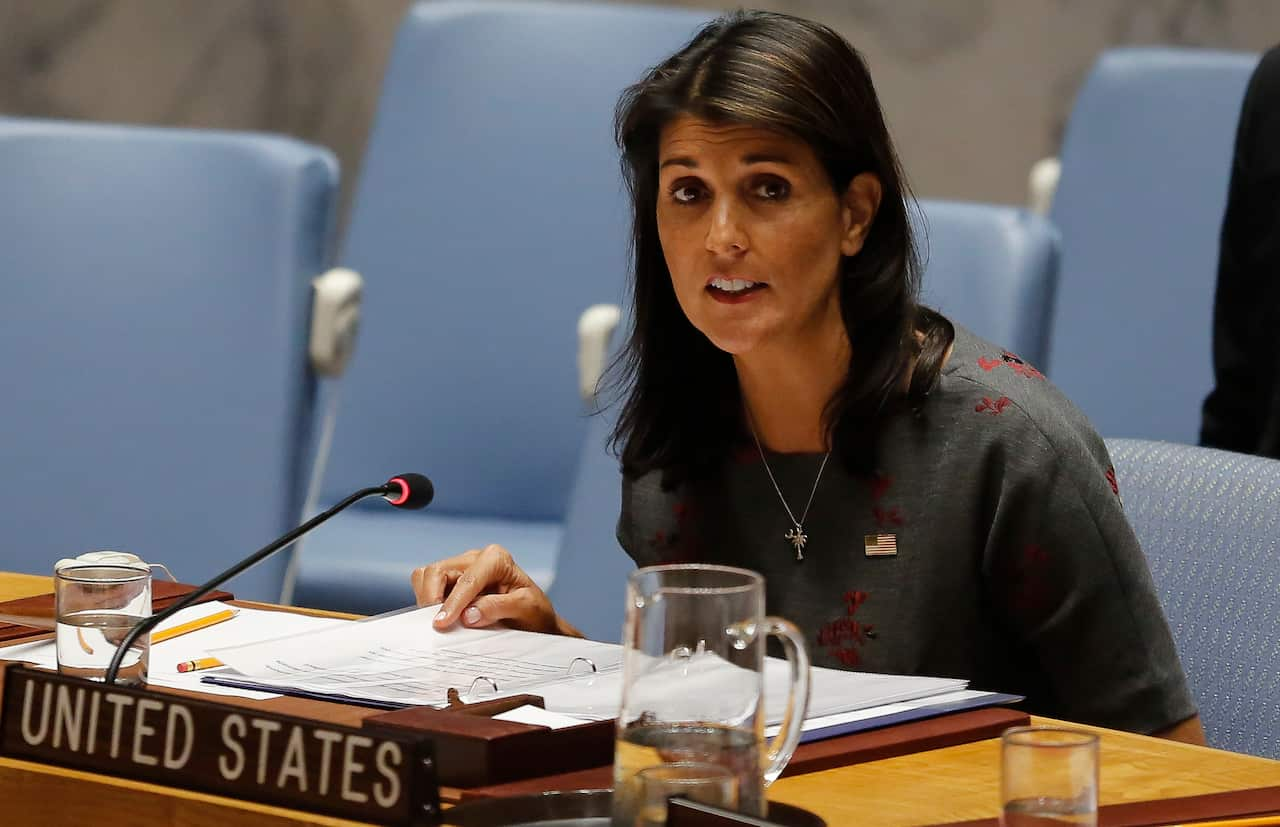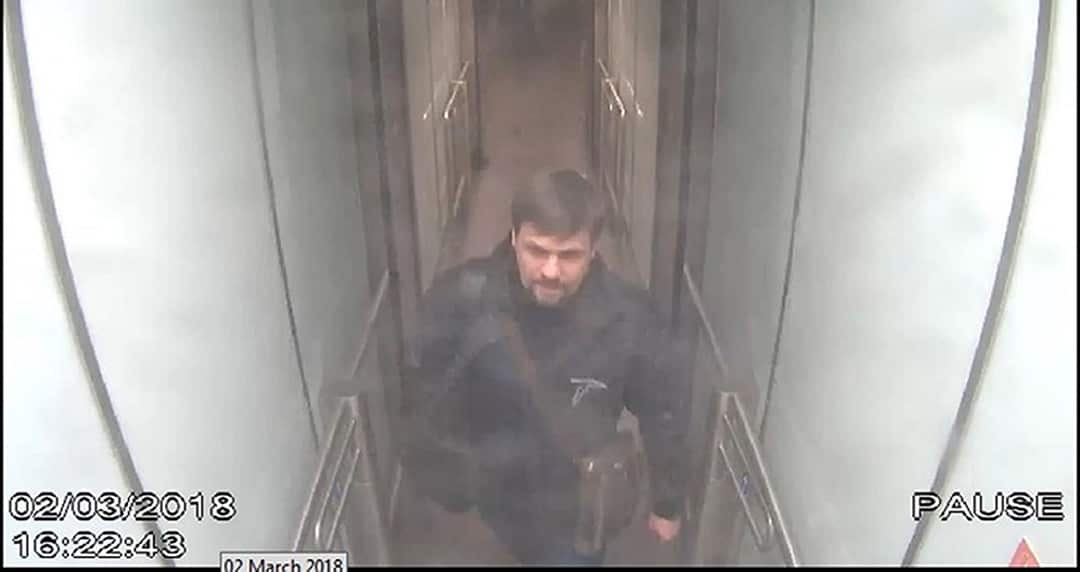The leaders of Britain, the United States, France, Germany and Canada said they had "full confidence" that the Novichok attack suspects were officers from Russia's military intelligence service.
In a joint statement reiterating their "outrage", the leaders said they were completely confident the attempted killing of former Russian double agent Sergei Skripal on British soil in March "was almost certainly approved at a senior government level" in Russia.
They also urged Moscow to come clean to the organisation for the Prohibition of Chemical Weapons (OPCW) about its Novichok programme.
The leaders added they would strengthen their activities to defend their societies against "malign state activity" and disrupt the hostile actions of foreign intelligence networks.
We, the leaders of France, Germany, the United States, Canada and the United Kingdom, reiterate our outrage at the use of a chemical nerve agent, known as Novichok, in Salisbury on March 4," they said in the statement, issued in London.

They welcomed the progress made in the investigation and the attempted murder charges brought against Russian suspects Alexander Petrov and Ruslan Boshirov, announced by Britain on Wednesday.
They also noted the OPCW's findings that "the exact same chemical nerve agent" was used in the fatal poisoning of Dawn Sturgess. She was the girlfriend of Charlie Rowley, who had picked up a fake perfume bottle containing Novichok.
"We urge Russia to provide full disclosure of its Novichok programme to the OPCW," they said.
"We have full confidence in the British assessment that the two suspects were officers from the Russian military intelligence service, also known as the GRU, and that this operation was almost certainly approved at a senior government level."
They said the mass expulsion of undeclared GRU officers in Russian embassies in the wake of the Salisbury attack had disrupted the service's activities.
"Yesterday's announcement further strengthens our intent to continue to disrupt together the hostile activities of foreign intelligence networks on our territories, uphold the prohibition of chemical weapons, protect our citizens and defend ourselves from all forms of malign state activity directed against us and our societies."
A Downing Street spokesman said Prime Minister Theresa May spoke to US President Donald Trump on Tuesday, Canadian leader Justin Trudeau Wednesday and French President Emmanuel Macron and German Chancellor Angela Merkel earlier Thursday.
Britain points finger at Putin
Britain pointed the finger at Russian President Vladimir Putin on Thursday for a nerve agent attack on a former Russian spy in England - a charge that Moscow rejected as "unacceptable".
London has accused two members of Russian military intelligence of using Novichok to try to kill former Russian double agent Sergei Skripal and his daughter Yulia in March.
Security Minister Ben Wallace said that Putin was "ultimately" responsible for the poisoning in the southwestern city of Salisbury - prompting an angry response from Moscow.
"For us any sort of accusation regarding the Russian leadership is unacceptable," Kremlin spokesman Dmitry Peskov told journalists.
Britain has previously accused Russia of orchestrating the attack, but Moscow denies any involvement and insists it is ready to cooperate in any investigation.
"Neither Russia's top leadership nor those in the ranks below, nor any official representatives have anything to do with the events in Salisbury," Peskov said.
London and its allies expelled dozens of Russian diplomats after the poisoning, prompting a tit-for-tat response from Moscow and plunging relations to a new low.
In a major new development, Prime Minister Theresa May announced Wednesday that police had issued international arrest warrants for the two suspects, identified as Alexander Petrov and Ruslan Boshirov.
She said they were members of Russian military intelligence and acted on orders from a "high level", but Wallace went further when asked if Putin had responsibility.
"Ultimately he does in so far as he is the president of the Russian Federation and it is his government that controls, funds and directs the military intelligence, the GRU, via his ministry of defence," Wallace told BBC radio.
He added: "I don't think anyone can ever say that Mr Putin isn't in control of his state... And the GRU is without doubt not rogue.

"It is led, linked to both the senior members of the Russian general staff and the defence minister, and through that into the Kremlin and the president's office."
Britain will brief the UN Security Council later Thursday on its latest findings, with the meeting due to open around 11:30 am (1530 GMT).
Cyber-war?
Amid reports that Britain was planning a direct response in cyber-space, Wallace said the Russians were the main operators behind attacks on British networks.
"We retaliate in our way... within the rule of law and in a sophisticated way, so they know the cost of what they do," he said.
The government is also reviewing visa applications by wealthy Russians in Britain, and is preparing new powers to stop people at the border if suspected of "malign state activity".
The Skripals survived the poisoning but a local man, Charlie Rowley, picked up a fake perfume bottle containing Novichok weeks later.

Rowley gave it to his girlfriend, Dawn Sturgess, who later died.
British prosecutors accuse Petrov and Boshirov of conspiracy to murder Skripal, attempted murder and the use of a banned chemical weapon.
They said they would not formally demand their extradition, as Russia does not extradite its citizens, but have obtained a European Arrest Warrant for the pair.

